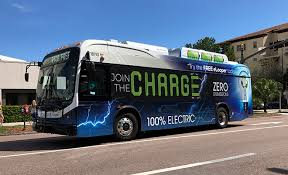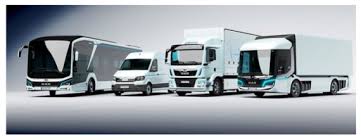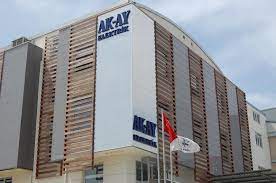As the world moves towards electrification in Commercial Vehicles (CV), the prospects for its introduction in Nigeria looks very slim as dilapidated fossil fuel-using commercial trucks and buses with dangerous gas fumes emission wax stronger on its roads.


New commercial vehicles being bought across the nation, which use fossil fuels, indicate a lack of strategy towards reducing gas emission in Nigeria and that the introduction of Electric Commercial Vehicles are far-fetched.
A total of 820 buses was purchased by Lagos State alone recently at a cost of N48 billion. 520 of the buses are still at the seaport.

Electrification in commercial vehicles is increasing globally with the framing of strict emission regulations. The need for charging infrastructure is equally growing with the electric commercial vehicle sales, and the market for charging equipment manufacturers is expected to open up with huge opportunities.
Electric CV sales will reach 2.18 million units globally by 2030, creating a huge demand for electric vehicle charging equipment, whose revenue is expected to grow to $885 billion globally, by 2030.
Fast Charging Technology will be the Widely Adopted Technology for commercial vehicles of the future.
China will clearly dominate, driven mainly by aggressive incentive structures, both for electric vehicles and purchase and installation of charging equipment across highways. Europe and North America are expected to be the next largest markets after China.
DC fast charging technology will be the widely adopted technology for commercial vehicles. Up to 350 kW ultra-fast DC chargers are developed to charge medium and heavy duty trucks. The next wave of charging technology, with more than 1 MW capacity, is under development by OEMs and charging equipment manufacturers.
China is leading the electrification wave, with the introduction of new GB/T charging standard with capacity up to 900 kW. Though high-capacity chargers are anticipated to be in place, the need for lower-power AC and DC charging units (up to 50 kW) will still exist in small quantities within cities; both fast and slow chargers will co-exist as the EV market expands. Charging associations like CHAdeMO and CHARIN are developing fast-charging technologies and standards to ensure interoperability of charging stations between various EV models.
With the development of charging technology and growth of the electric vehicle charging equipment market, expectations from fleets will increase in the long term, including reduced charging time, geographical coverage, parking feasibility, and competitive pricing. Automakers, charging equipment manufacturers, and charging point operators are likely to collaborate in the near-to-short term to offer value-added offerings. Value-chain integration and ecosystem expansion will be the next focus.
Along with technology advancements, intense competition is foreseen among equipment manufacturers to adopt technologies and gain market share. With increasing potential, government, oil and gas companies, utility companies, OEMs, and other value-chain participants will soon invest in expanding the charging infrastructure.
But there are huge potentials for electric vehicles and charging infrastructure in Nigeria as such will not depend on the existing power infrastructure that is in itself inadequate. A private sector led deployment of charging infrastructure nationwide will make the system work independent of the power holding companies.















